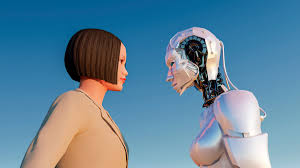"The real threat of artificial intelligence is the clumsiness of human beings."
You decide to go out to dinner tonight. Your partner might not know what you want to eat, but artificial intelligence does: it watched you this afternoon watching videos of tacos and knows that right now you can't stop thinking about them. "If we don't make decisions, others will make them for us," says Laura G. de Rivera, a journalist and writer from Spain, in her book "Slaves of the Algorithm: A Manual for Resistance in the Age of Artificial Intelligence," the result of years of study. "Human beings are very predictable, so we live immersed in emotions, thoughts, and desires that are imposed on us from the outside." "It's enough to analyze statistics on our past actions; it's as if someone were reading our minds," she continues. "It's as if someone were reading our minds." The accuracy in predicting our needs and desires is so high that Michal Kosinski, a psychologist and professor at Stanford University, has demonstrated through his studies that a properly trained algorithm, using appropriate digital data, can anticipate what you want or what you like better than your own mother. That artificial intelligence is capable of predicting a person's interests with such accuracy initially seems like a positive thing. But it comes at a high cost, says De Rivera: "We lose our freedom, we are deprived of the possibility of being ourselves, we lose our imagination."
11/8/20251 min read


Contenido de mi publicación
